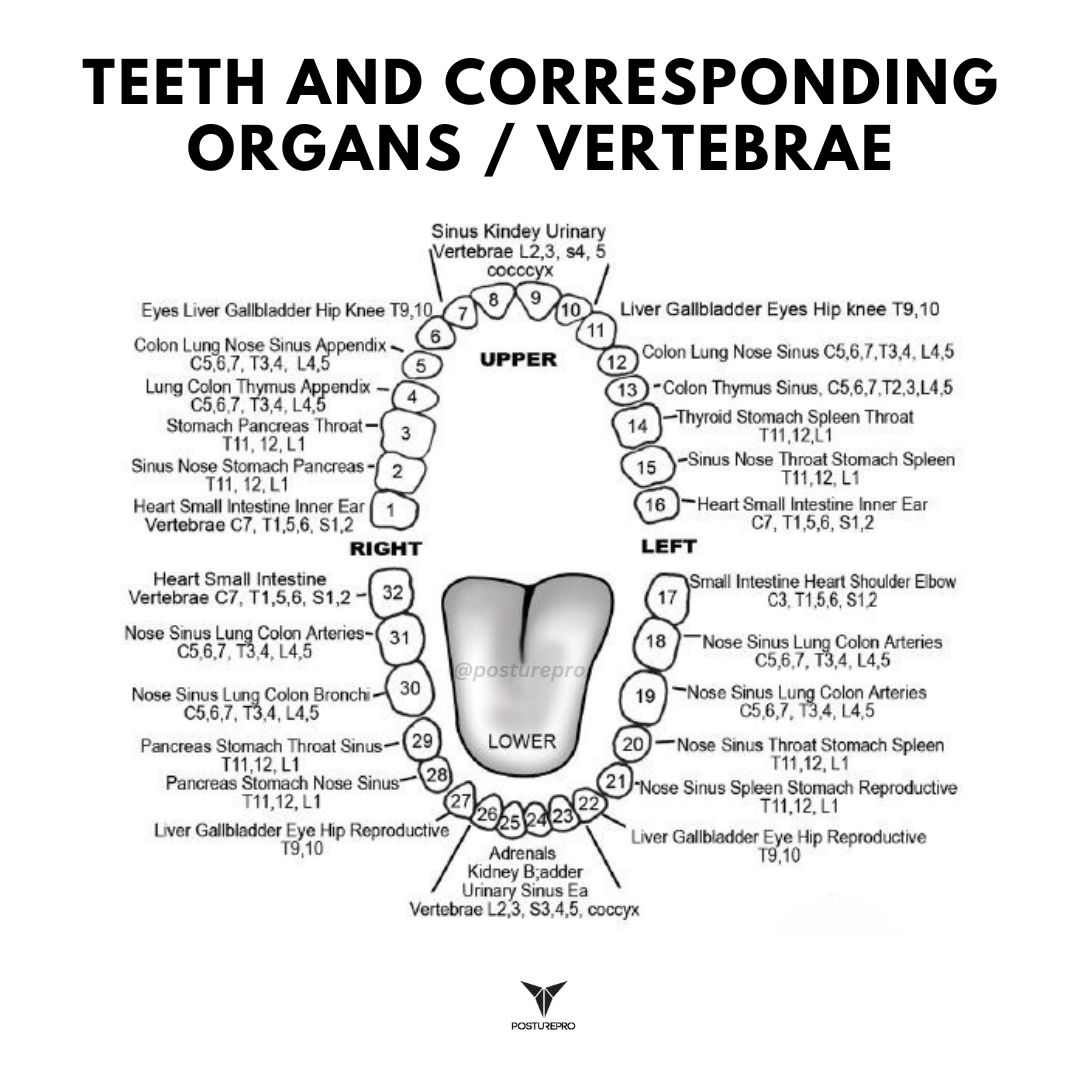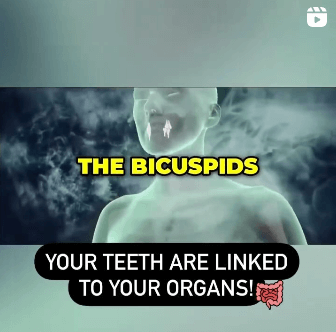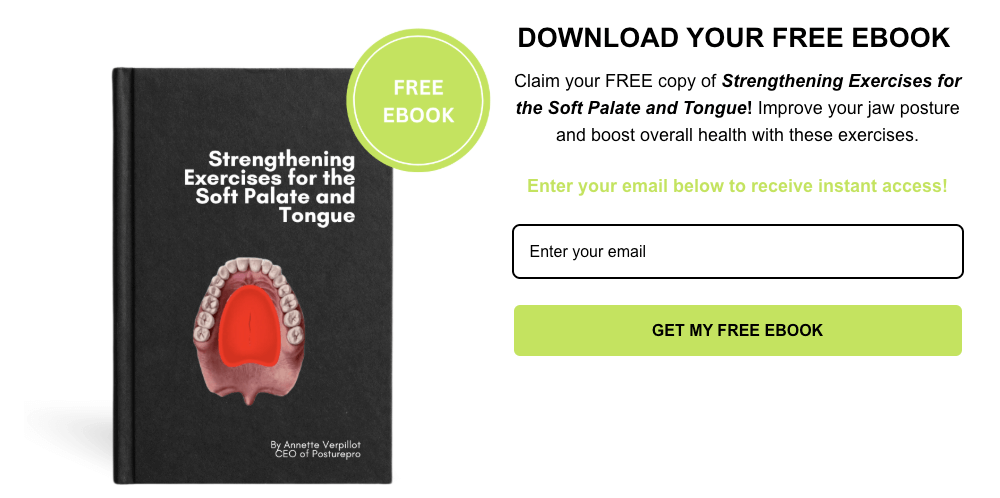What Happens to Your Body When You Remove Wisdom Teeth
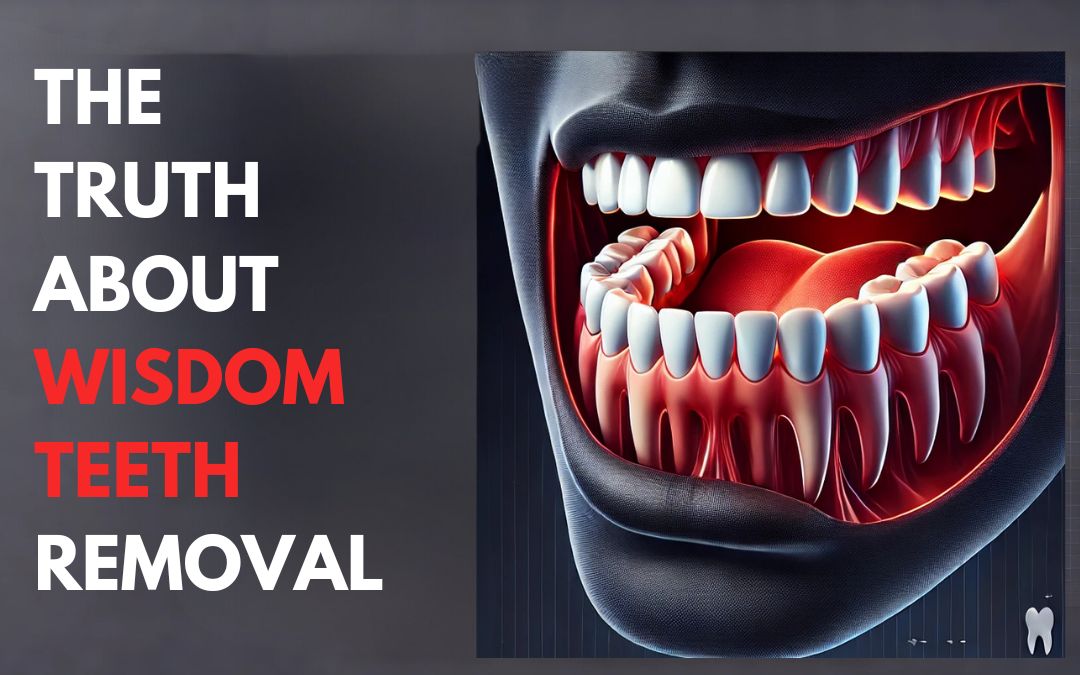
Wisdom teeth, also known as third molars, are the last set of teeth to develop, usually erupting between the ages of 17 and 25. While some people have no trouble with their wisdom teeth, others face overcrowding, impaction, or alignment issues.
While wisdom tooth extraction is a common dental procedure, it’s important to understand its effects on the body beyond just the mouth. Let’s explore what happens to your body when you remove wisdom teeth and how it can impact your overall health and posture.
But what happens to your body during and after the procedure?
Download our FREE eBook a Guide to Effective Tongue Exercises
The Immediate Effects of Wisdom Tooth Removal
Wisdom tooth removal can have both localized and systemic effects on the body. Initially, the area experiences inflammation, swelling, and tenderness as the body begins the healing process.
This can impact the surrounding muscles, jaw alignment, and even posture, especially if the procedure alters the balance of the bite.
Additionally, if the periodontal ligament isn’t removed or the extraction site isn’t thoroughly cleaned, it can lead to cavitations—unhealed pockets in the jawbone that may harbor bacteria and toxins.
These can interfere with the body’s energy flow through acupuncture meridians, potentially affecting organs and systems linked to the wisdom teeth, such as the heart, small intestine, and adrenal glands.
Impact on Jaw and Facial Structure
Wisdom teeth play a role in stabilizing the jaw and maintaining its structure. When removed, especially if multiple teeth are extracted, it can alter the balance of your bite and affect the alignment of your jaw. This may lead to compensatory tension in surrounding muscles, such as those in the neck, shoulders, and even the spine. Over time, these compensations can result in postural imbalances or chronic discomfort.
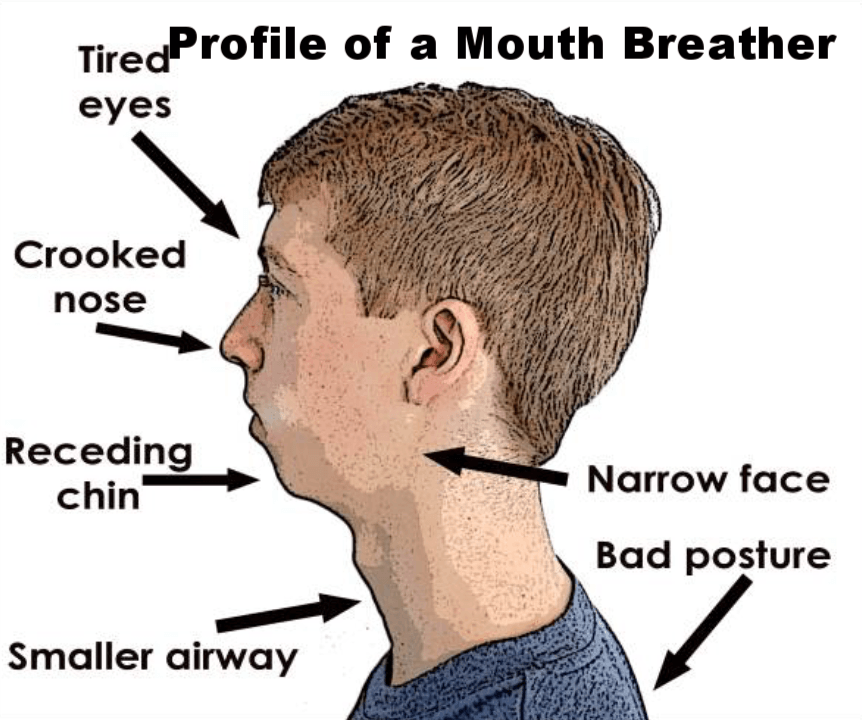
Tooth-Meridian Connections and Posture
According to meridian theory, each tooth is connected to specific organs and systems in the body through energetic pathways. Wisdom teeth, in particular, are associated with the heart, small intestine, and adrenal glands. When wisdom teeth are removed, it can temporarily disrupt the flow of energy along these meridians, potentially affecting the organs they’re linked to.
For example, some individuals may experience fatigue, adrenal imbalance, or heart-related symptoms after wisdom tooth removal, as the body adjusts to the loss of these energetic connections. Supporting overall health during recovery can help mitigate these effects.
Systemic Health Considerations
Oral surgery doesn’t just affect the mouth—it has systemic implications. The jaw is densely connected to cranial nerves, which influence the brain, energy regulation, and posture. Chronic infections or unaddressed cavitations at the extraction site can contribute to systemic inflammation, fatigue, and even autoimmune conditions. These issues can persist if the underlying cause isn’t addressed.
Furthermore, wisdom tooth removal may impact posture indirectly by altering jaw alignment. The jaw plays a key role in balancing the head, neck, and spine. Changes in how the jaw moves after surgery can create compensatory patterns in posture, leading to long-term musculoskeletal imbalances.
Why Wisdom Teeth Removal Is Often Necessary
Wisdom teeth removal is often linked to poor tongue posture. When the tongue doesn’t rest properly against the roof of the mouth, it can lead to underdeveloped dental arches, reducing the space needed for teeth to align properly. This lack of space often causes wisdom teeth to become impacted, grow at awkward angles, or crowd other teeth, resulting in alignment issues.
Poor tongue posture is often an overlooked factor, but addressing it early through exercises or myofunctional therapy can help prevent these problems. Without this intervention, removal of wisdom teeth is frequently seen as the solution to alleviate discomfort, overcrowding, and other complications.
However, wisdom tooth removal is not without consequences. The procedure can disrupt jaw alignment, posture, and even energy systems connected through acupuncture meridians. These teeth, like all others, are part of a larger network that influences your body’s overall balance and health.
To minimize long-term effects, it’s important to approach recovery holistically. This might include consulting a biological dentist, supporting meridian health, or addressing postural alignment. Remember, your teeth play a crucial role in your body’s overall structure and function, and maintaining their health is essential for your well-being.
In addition to this, incorporating a Functional Activator into your routine is a game-changer. This innovative tool is designed to improve neck posture and spinal alignment by targeting proper tongue positioning.
By encouraging correct engagement of the tongue and its related muscles, the Functional Activator helps alleviate tension in the neck and enhances overall body alignment.
It’s simple to use, effective, and perfectly complements tongue exercises and breathwork techniques.
Download our FREE eBook, A Guide to Effective Tongue Exercises, and discover step-by-step methods to transform your tongue posture.
Ready to breathe better and feel your best?
Explore more tools to support your journey here:
👉 Breathe Better with the Functional Activator
Make the choice today for better breathing, posture, and overall health!
Breathe Better. Live Better
The Functional Activator is a revolutionary mouthguard that helps you breathe better, sleep deeper, and improve your posture. By training your tongue to rest at the top of your palate, it restores nasal breathing and relieves jaw tension.
Its unique double-arched design gently opens the temporomandibular joint, activating jaw muscles to realign your neck and pelvis.
Perfect for anyone struggling with poor neck posture, rounded shoulders, anterior pelvic tilt , disrupted sleep, or jaw pain, this dentist-developed tool offers a simple solution to transform your well-being and increase longevity.
What happens to the body when wisdom teeth are removed?
When wisdom teeth are removed, the body begins the healing process immediately. Swelling, tenderness, and inflammation at the extraction site are common as the tissue repairs itself. Additionally, removing wisdom teeth can temporarily alter jaw alignment, which may affect posture or muscle tension in the neck and shoulders. If not properly addressed, the removal can also disrupt energy flow through acupuncture meridians, potentially impacting organs connected to those teeth.
Are there any side effects of removing wisdom teeth?
Yes, some potential side effects include pain, swelling, and difficulty chewing during recovery. Incomplete healing can lead to cavitations—unhealed pockets in the jawbone—that harbor bacteria and may cause chronic inflammation. Long-term effects could include changes in jaw alignment, muscle tension, or disruptions in meridian energy flow, which can influence overall health. Proper care and alignment are crucial to avoid these issues.
Does removing wisdom teeth affect your health?
Removing wisdom teeth can impact overall health by altering jaw alignment, which may affect posture and muscle balance. Additionally, if the extraction site isn’t properly cleaned or the periodontal ligament isn’t removed, it can lead to infections or cavitations. These can disrupt the body’s energy pathways, potentially influencing connected organs or systems.
What is the hardest day after wisdom teeth removal?
The second or third day after wisdom teeth removal is typically the hardest, as swelling and inflammation peak during this time. Pain and discomfort may feel more intense, but they usually begin to subside after this period. Proper post-operative care, such as icing the area, staying hydrated, and following your dentist’s instructions, can help ease the recovery process.
What is the connection between dental health, body alignment, and systemic energy flow?
Your dental health is intricately linked to your body’s alignment and energy flow through acupuncture meridians. Each tooth corresponds to specific organs, muscles, and nerves, forming a network that influences the entire body. When a tooth is compromised—through infection, misalignment, or removal—it can disrupt these energy pathways, potentially affecting the organs and systems connected to it. For instance, wisdom teeth are associated with the heart, small intestine, and adrenal glands, and their removal may cause energy blockages that impact those systems. Additionally, misaligned teeth can alter jaw position, affecting the muscles and bones in the neck, shoulders, and spine, leading to postural imbalances. This ripple effect underscores the importance of maintaining dental health for overall structural and energetic harmony.
How does jaw alignment, influenced by wisdom teeth, affect your posture and spinal health?
Jaw alignment plays a crucial role in maintaining balance in your posture and spine. Wisdom teeth, when impacted or misaligned, can push neighboring teeth and alter the natural position of the jaw. This can lead to tension in the jaw muscles (temporalis and masseter) and cause compensatory shifts in the neck, shoulders, and spine. For example, a misaligned jaw can cause forward head posture, which strains the cervical spine and upper back. Over time, these misalignments can create muscle imbalances, joint pain, and poor overall posture. Proper jaw alignment ensures that your bite is balanced, supporting the natural curves of the spine and preventing chronic issues.
Can improving tongue posture and alignment prevent the need for wisdom tooth removal?
Yes, improving tongue posture can significantly reduce the risk of wisdom tooth impaction and even eliminate the need for removal in some cases. The tongue plays a vital role in shaping the dental arches during development by exerting gentle, consistent pressure on the roof of the mouth. Poor tongue posture—such as resting the tongue on the floor of the mouth or not maintaining proper suction against the palate—can lead to underdeveloped arches, which result in crowding and insufficient space for wisdom teeth to erupt naturally. By practicing correct tongue posture through myofunctional therapy or tongue exercises, you can encourage proper jaw and arch development, potentially creating enough room for wisdom teeth to align correctly. Addressing tongue posture early in life is key to avoiding the need for surgical intervention later on.

FREE DOWNLOAD
Download the Brainpro app today and start your journey toward better posture and overall health.


